
Plzeň: The Heartbeat of Czech Culture and Brewing Legacy
Plzeň, often known internationally as Pilsen, is a city brimming with vibrant culture, rich history, and a brewing legacy that dates back centuries. Located in the western part of Czechia, it is the fourth largest city in the country and the birthplace of the world-renowned Pilsner beer. The city’s old town is a delightful maze of cobbled streets, beautiful Gothic, Renaissance, and Baroque architecture, and a grand central square, Republic Square, where the imposing St. Bartholomew's Cathedral stands tall. Beer enthusiasts will find Plzeň a paradise. The Pilsner Urquell Brewery, established in 1842, offers insightful tours where visitors can learn about the brewing process and enjoy tastings of the original Pilsner straight from the source. Beyond beer, Plzeň is also home to several engaging museums, such as the West Bohemian Museum and the Techmania Science Center, which offer fascinating insights into the region's history and scientific advancements. Plzeň’s cultural scene is equally impressive. The city hosts various festivals throughout the year, including the International Theatre Festival and the Pilsner Fest. The Great Synagogue, the second largest in Europe, is another must-visit, reflecting the city’s rich multicultural heritage. For those seeking outdoor activities, the lush Borský Park and the serene Radbuza River provide ample opportunities for leisurely strolls and picnics. Plzeň's blend of historic charm, cultural vibrancy, and brewing excellence makes it a captivating destination for tourists from around the globe.
Local tips in Plzeň
- Visit the Pilsner Urquell Brewery early in the day to avoid crowds and enjoy a more relaxed experience.
- Explore Republic Square in the evening to witness the beautiful lighting of the historic buildings.
- Take advantage of the city's efficient tram system to easily navigate between attractions.
- Check the local calendar for upcoming festivals and events to enhance your visit with unique cultural experiences.
- Visit the Great Synagogue on a weekday to avoid the weekend rush and enjoy its architectural beauty in a quieter setting.
Plzeň: The Heartbeat of Czech Culture and Brewing Legacy
Plzeň, often known internationally as Pilsen, is a city brimming with vibrant culture, rich history, and a brewing legacy that dates back centuries. Located in the western part of Czechia, it is the fourth largest city in the country and the birthplace of the world-renowned Pilsner beer. The city’s old town is a delightful maze of cobbled streets, beautiful Gothic, Renaissance, and Baroque architecture, and a grand central square, Republic Square, where the imposing St. Bartholomew's Cathedral stands tall. Beer enthusiasts will find Plzeň a paradise. The Pilsner Urquell Brewery, established in 1842, offers insightful tours where visitors can learn about the brewing process and enjoy tastings of the original Pilsner straight from the source. Beyond beer, Plzeň is also home to several engaging museums, such as the West Bohemian Museum and the Techmania Science Center, which offer fascinating insights into the region's history and scientific advancements. Plzeň’s cultural scene is equally impressive. The city hosts various festivals throughout the year, including the International Theatre Festival and the Pilsner Fest. The Great Synagogue, the second largest in Europe, is another must-visit, reflecting the city’s rich multicultural heritage. For those seeking outdoor activities, the lush Borský Park and the serene Radbuza River provide ample opportunities for leisurely strolls and picnics. Plzeň's blend of historic charm, cultural vibrancy, and brewing excellence makes it a captivating destination for tourists from around the globe.
When is the best time to go to Plzeň?
Iconic landmarks you can’t miss
Cathedral of St. Bartholomew
Explore the stunning Cathedral of St. Bartholomew in Pilsen, a Gothic masterpiece with the tallest spire in the Czech Republic, rich in history and beauty.
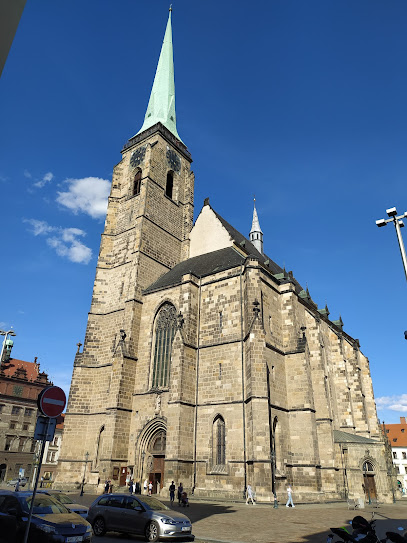
Historic Underground of Plzen
Uncover the hidden history of Pilsen at the Historic Underground, a fascinating network of tunnels and chambers from the 13th century.
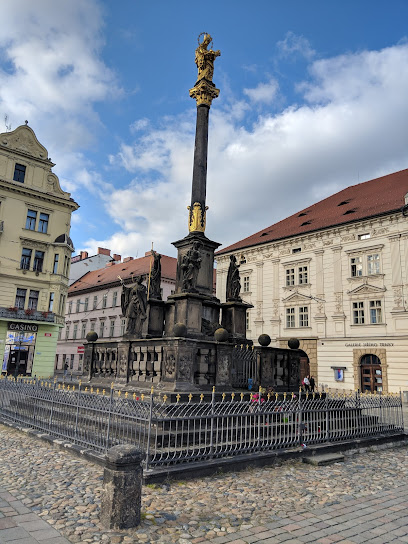
Museum of West Bohemia in Pilsen
Discover the rich history and vibrant culture of West Bohemia at the Museum of West Bohemia in Pilsen—a treasure trove of art and artifacts.
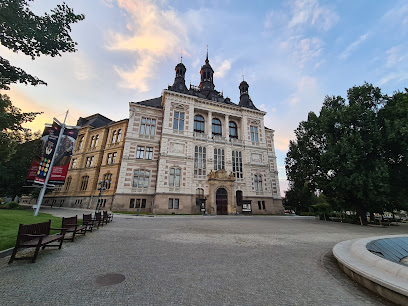
Brewery Museum
Experience Pilsen's brewing legacy at the Brewery Museum, where history and craftsmanship meet in a celebration of Czech beer culture.
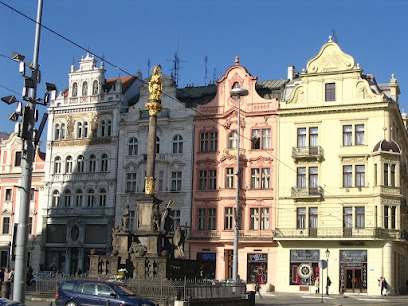
Puppet Museum
Explore the whimsical world of puppetry at Pilsen's Puppet Museum, a cultural gem showcasing the art and history of this enchanting craft.
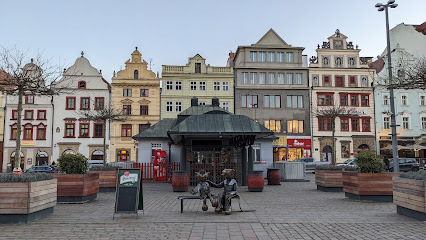
Victims of evil monument
Explore the Victims of Evil Monument in Pilsen - a serene garden memorial combining art, history, and nature for a reflective experience.
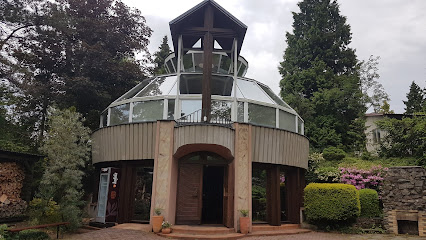
Patton Memorial Pilsen
Discover the legacy of General Patton and the U.S. Army at the Patton Memorial Pilsen, a historical museum celebrating liberation and courage.
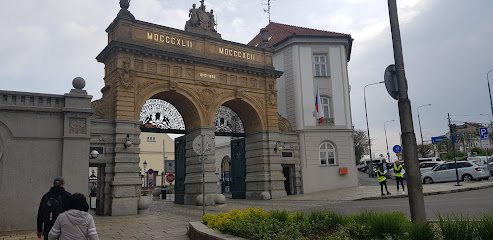
lookout Sylván
Experience breathtaking panoramic views and serene landscapes at Lookout Sylván, a must-visit observation deck in Pilsen, Czech Republic.
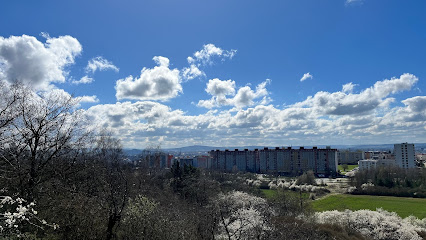
Památník Díky, Ameriko!
Discover Památník Dík, Ameriko! in Pilsen, a monumental tribute to democracy that enriches your travel experience with history and beauty.
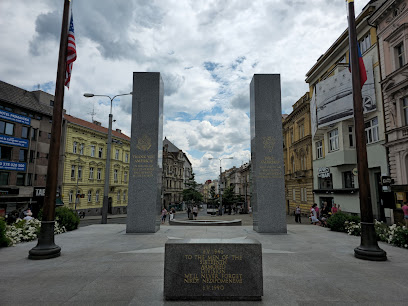
Church Tower
Discover the breathtaking views and rich history at the Church Tower in Pilsen, a stunning landmark that captivates every visitor.
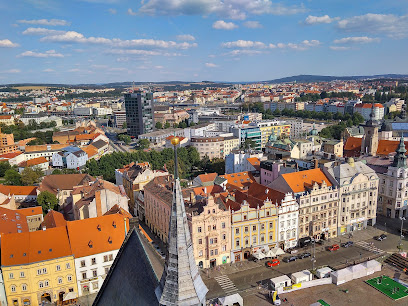
Kostel svaté Anny
Explore Kostel svaté Anny, a serene church in Plzeň, where history, architecture, and tranquility converge for an unforgettable experience.
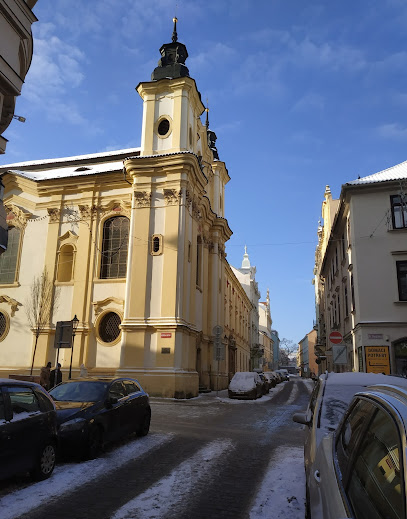
Pražský most
Discover the Pražský most in Pilsen, a historical bridge that embodies the city's rich heritage and offers stunning views along the Radbuz River.
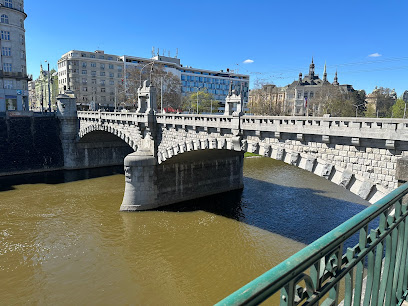
Západočeská galerie v Plzni - výstavní síň „13“
Explore Západočeská Galerie in Plzeň, a premier art gallery showcasing modern and contemporary art in a stunning architectural setting.
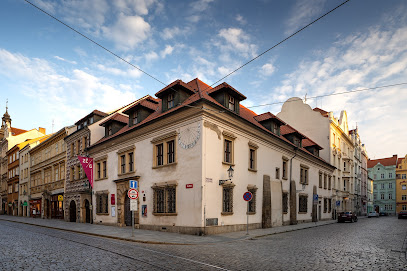
Černá věž
Discover Černá věž, Pilsen's iconic historical landmark, where breathtaking views and rich history come together in a vibrant cultural atmosphere.
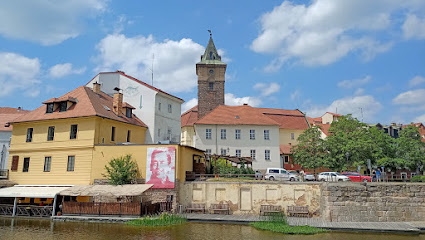
Museum of West Bohemia in Pilsen - Ethnical Museum
Explore the rich cultural heritage of West Bohemia at the Museum of West Bohemia in Pilsen, a captivating journey through history and traditions.
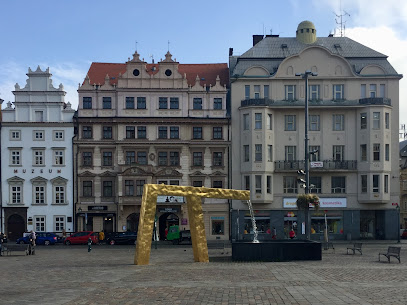
Unmissable attractions to see
Plzeň Zoo
Explore diverse wildlife and botanical wonders at Plzeň Zoo, a leading conservation center in the Czech Republic.
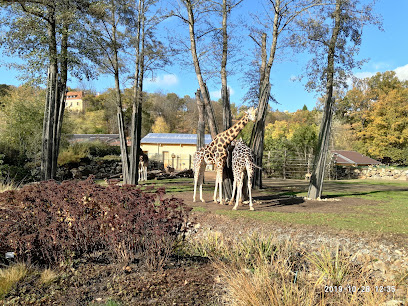
Křivoklát Castle
Discover the enchanting Křivoklát Castle, a historical gem in the Czech Republic, where medieval architecture meets breathtaking natural beauty.
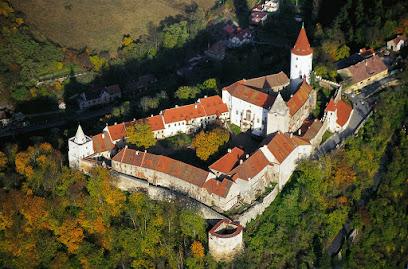
Cathedral of St. Bartholomew
Discover the stunning Gothic architecture and rich history of the Cathedral of St. Bartholomew in the heart of Pilsen, a must-see for every traveler.
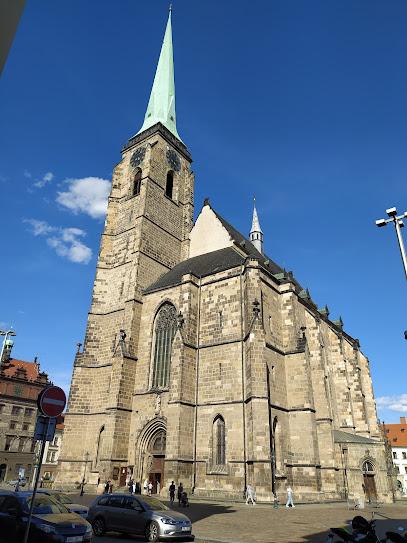
DinoPark Plzeň
Discover the prehistoric world at DinoPark Plzeň, an exhilarating amusement park filled with life-sized dinosaur models and educational attractions for the whole family.
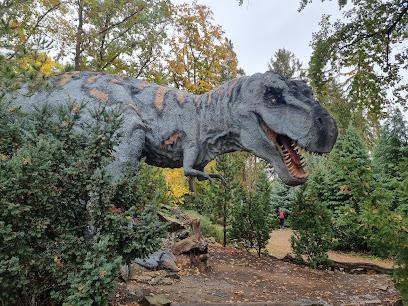
DEPO2015
Experience the vibrant cultural scene of Pilsen at DEPO2015, a hub for art, creativity, and community engagement.
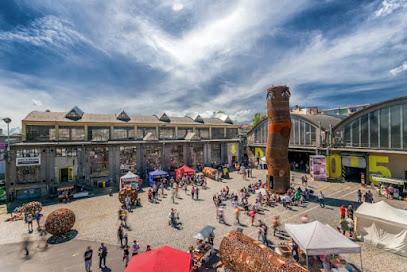
Chateau Zbiroh
Explore the historic Chateau Zbiroh, a stunning castle surrounded by nature, rich in history, and perfect for hiking enthusiasts and tourists alike.
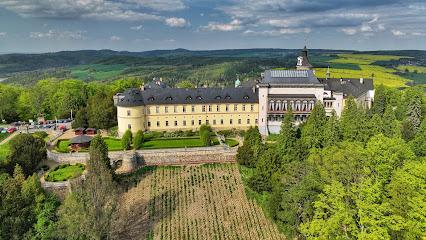
Borský park
Explore Borský Park in Pilsen, a lush haven for relaxation and family fun, featuring playgrounds, scenic paths, and art scattered throughout its beautiful landscape.
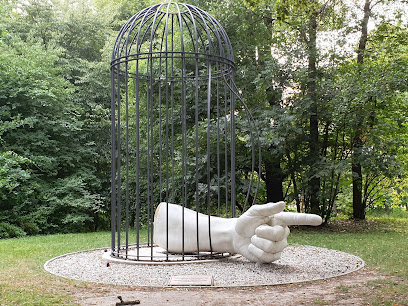
Techmania Science Center
Explore the wonders of science and technology at Pilsen's interactive Techmania Science Center, perfect for all ages.
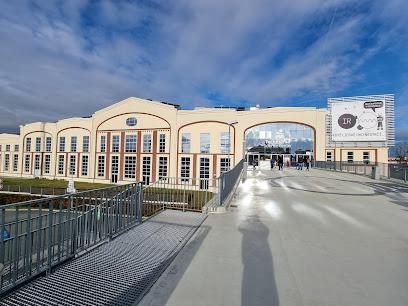
Historic Underground of Plzen
Unearth the captivating history of Pilsen with a visit to the Historic Underground, a unique tourist attraction that reveals the city's hidden past.
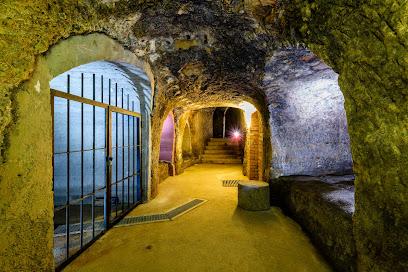
Great Synagogue
Explore the Great Synagogue in Pilsen: a magnificent architectural gem, cultural venue, and a testament to the city's rich Jewish heritage.
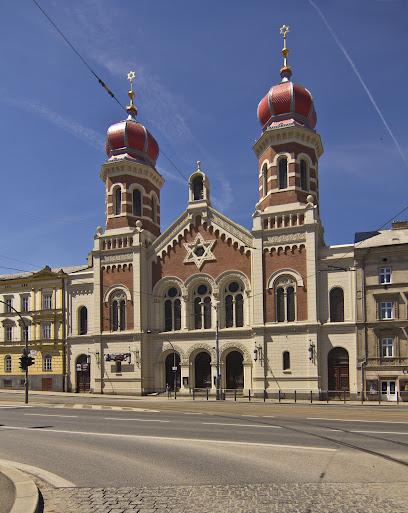
Chvojka Quarries Park
Explore the tranquil Chvojka Quarries Park in Pilsen, where stunning landscapes and rich history come together for an unforgettable outdoor experience.
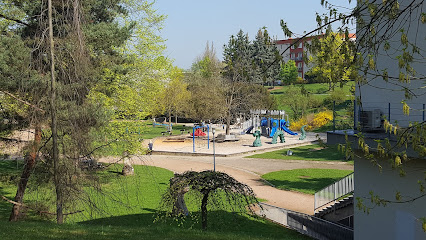
Lochotín park
Discover the tranquility and natural beauty of Lochotín Park in Pilsen, a must-visit destination for nature lovers and outdoor enthusiasts.
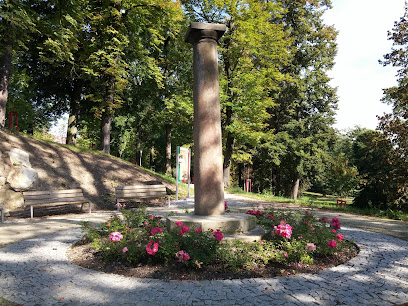
Brewery Museum
Explore the Brewery Museum in Pilsen, where the history of Czech brewing comes to life through interactive exhibits and tastings.
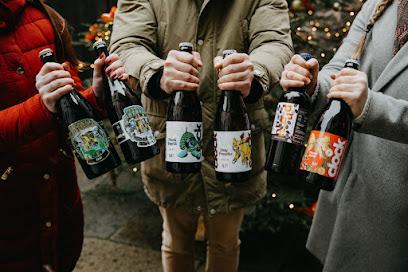
Česká řeka
Explore the Czech Zoo in Plzeň for an unforgettable wildlife adventure filled with fascinating animals and educational experiences.
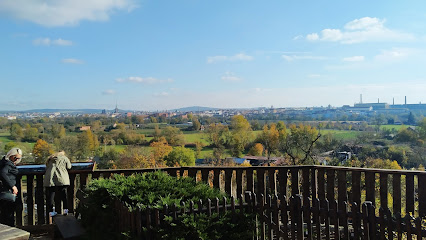
Victims of evil monument
A tranquil meditation garden in Plzeň honoring victims of totalitarian regimes, offering a space for reflection and remembrance.
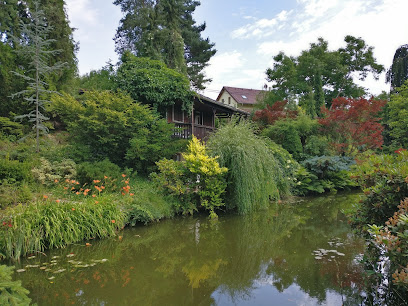
Essential places to dine
Hospoda Na Spilce - tankové pivo
Experience authentic Czech cuisine and freshly brewed tankové pivo at Hospoda Na Spilce in Plzeň - a true haven for beer lovers.
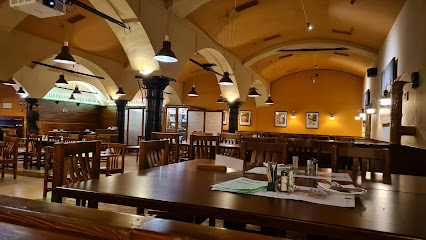
Parkan
Experience the essence of Czech culture at Parkan in Pilsen—where traditional cuisine meets craft beer in a vibrant brewpub setting.
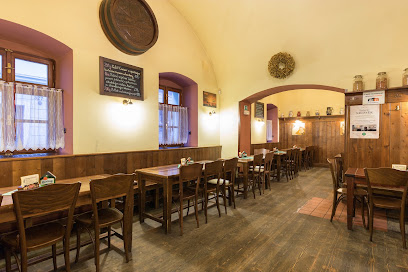
Restaurace & Hotel U Salzmannů
Discover the flavors of Czech cuisine and exceptional hospitality at Restaurace & Hotel U Salzmannů in Pilsen.
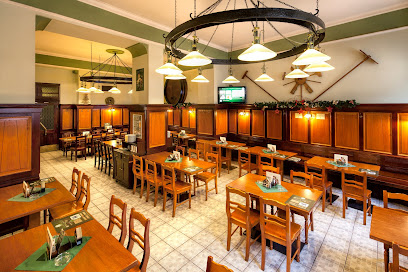
Pizzeria Da Pietro
Discover the best authentic Italian pizza at Pizzeria Da Pietro in Pilsen - where tradition meets flavor.
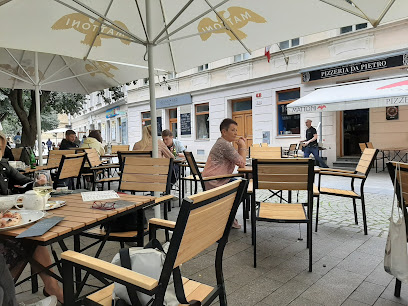
Lokál Pod Divadlem
Discover Lokál Pod Divadlem: A must-visit restaurant and pub in Pilsen offering authentic Czech cuisine and local brews.
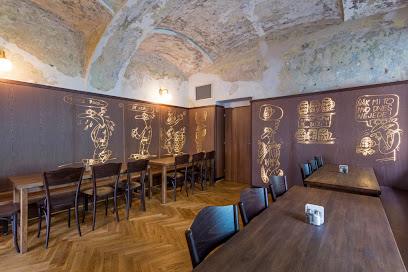
Delish
Savor gourmet hamburgers at Delish in Pilsen – where quality meets creativity in every bite.
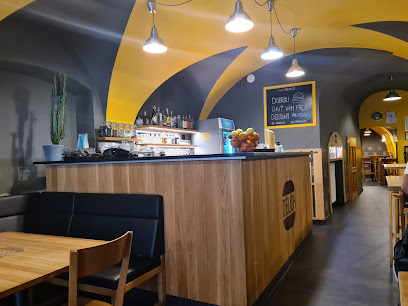
Restaurace a vinárna U Mansfelda
Discover authentic Czech cuisine and fine wines at Restaurace a vinárna U Mansfelda in Pilsen – a culinary gem for every traveler.
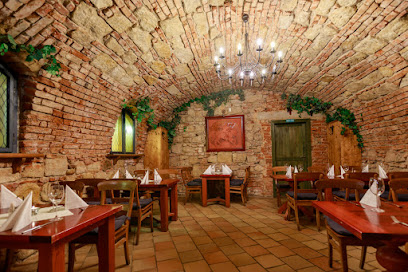
Švejk Restaurant U Pětatřicátníků
Experience authentic Czech cuisine and exceptional beer at Švejk Restaurant U Pětatřicátníků in Pilsen – a true taste of tradition.
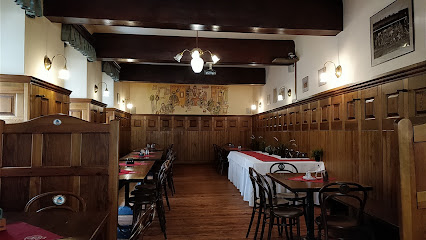
Restaurace 12
Discover authentic Czech flavors at Restaurace 12 in Pilsen - where tradition meets modern brewing in a delightful garden setting.
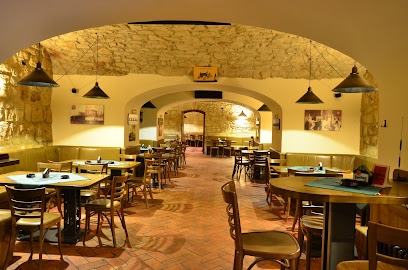
Lékárna - restaurant - šenk
Discover authentic Czech cuisine at Lékárna in Pilsen - where tradition meets modern culinary art.
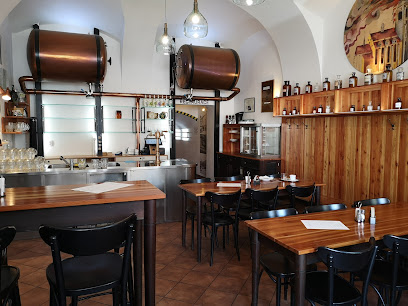
Restaurace Potrefená Husa
Discover authentic Czech cuisine at Restaurace Potrefená Husa in Pilsen - where tradition meets taste in every delightful dish.
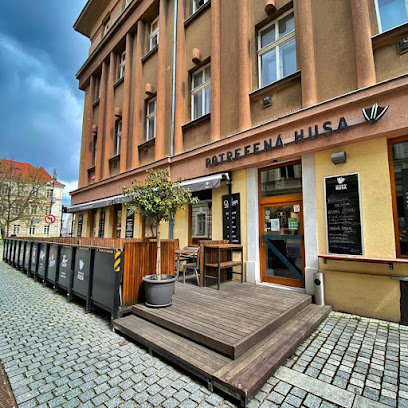
Le Frenchie café
Experience Parisian charm at Le Frenchie Café in Pilsen—enjoy exquisite pastries, delicious brunches, and aromatic coffees.
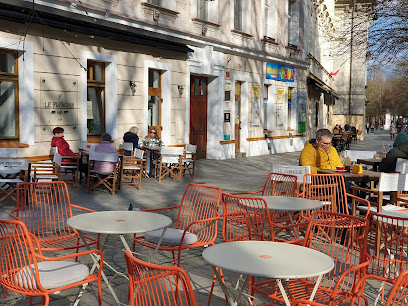
Uctívaný Velbloud
Experience the flavors of Pilsen at Uctívaný Velbloud, where local ingredients meet international cuisine in a vibrant setting.
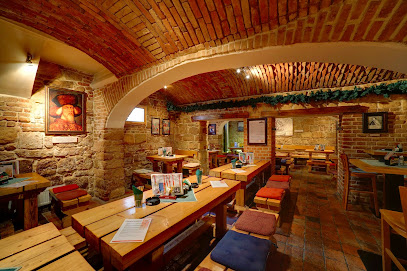
Pivstro - Beer Bistro
Discover the essence of Czech beer culture at Pivstro - Beer Bistro in Pilsen, where exquisite brews meet delicious traditional cuisine.
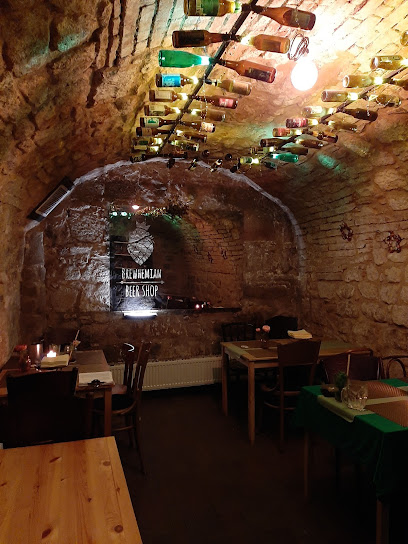
Srdcovka Corso
Discover the heart of Czech cuisine at Srdcovka Corso – where traditional flavors meet craft brewing in Pilsen.
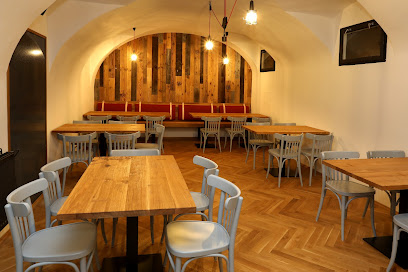
Markets, malls and hidden boutiques
Centrum Olympia Plzeň
Explore Centrum Olympia Plzeň, where shopping, dining, and entertainment come together in a vibrant atmosphere.
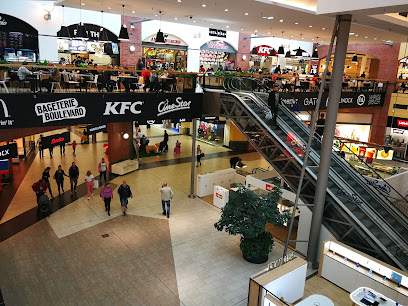
Plzeň Plaza
Discover shopping bliss at Plzeň Plaza, where fashion, food, and fun meet in the heart of Pilsen.
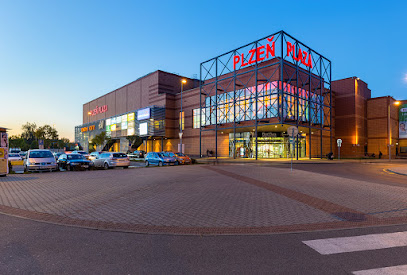
Decathlon Plzeň
Explore Decathlon Plzeň for an extensive range of sporting goods, bicycles, and ski equipment, all in one convenient location.
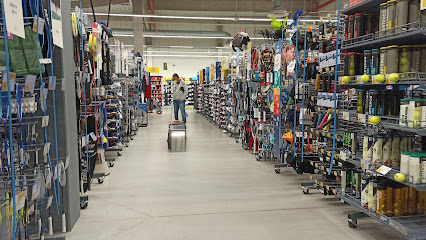
Shopping center Plzeň
Discover a shopping haven in Plzeň, where diverse retail options and delightful dining create an unforgettable experience.
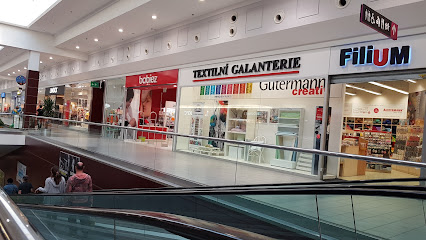
Secondhelp DOUBRAVKA
Explore Secondhelp Doubravka in Pilsen for unique second-hand fashion treasures that blend sustainability with style.
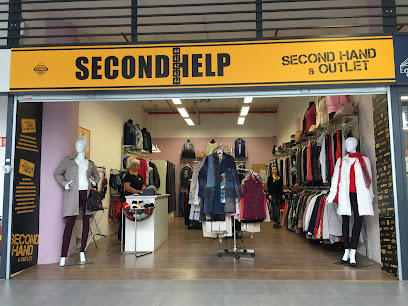
GATE
Discover GATE in Pilsen for stylish clothing that blends quality and affordability in a vibrant shopping atmosphere.
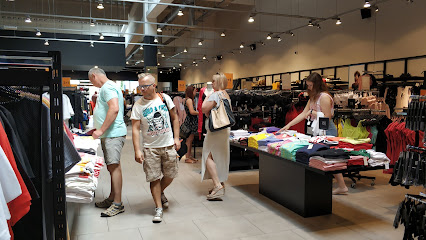
Oficiální Fanshop FC Viktoria Plzeň
Discover the heart of FC Viktoria Plzeň at the Official Fanshop - your ultimate destination for football memorabilia in Pilsen.
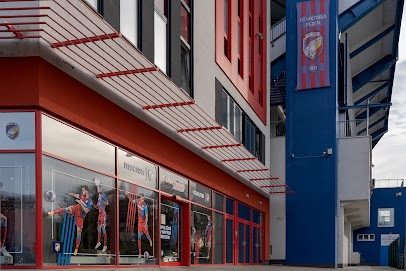
The Candy Store
Explore a world of sweetness at The Candy Store in Pilsen, where delightful treats and nostalgic flavors await every candy lover.
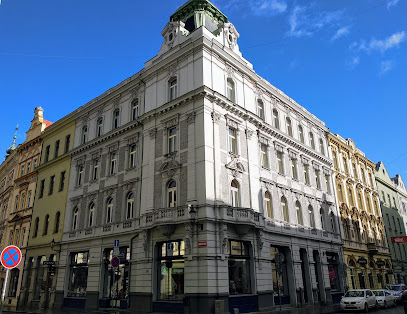
Bonbonek.cz - Paradise delicacies
Discover Bonbonek.cz in Pilsen for an unforgettable selection of gourmet treats, sweets, and unique gifts that capture the essence of Czech culinary delights.
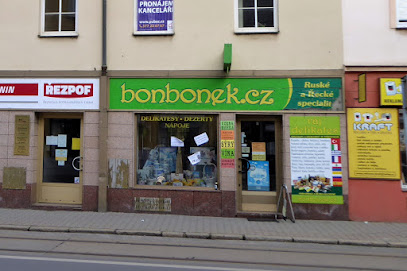
World of nuts and chocolate, gifts / Chocolate shop Plzeň
Discover the exquisite flavors of gourmet chocolates, artisanal candies, and nutty delights at Plzeň's premier chocolate shop.
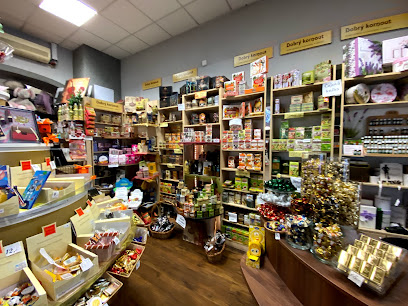
MINERAL Plzeň, prodejna Plzeň
Explore Mineral Plzeň, a charming gift shop in Pilsen offering unique minerals and handcrafted treasures perfect for souvenirs.
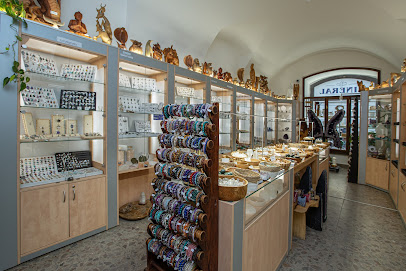
Underground - Smart shop
Explore Pilsen's Underground - Smart Shop for unique gifts, cannabis products, and wellness essentials in a vibrant shopping atmosphere.
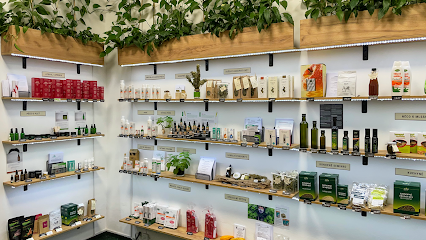
Fan shop HC Plzeň
Explore HC Plzeň Fan Shop for exclusive hockey merchandise and immerse yourself in Pilsen's vibrant sports culture.
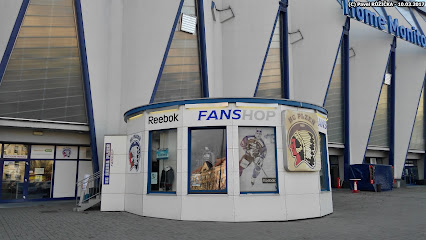
GadgetIT s.r.o.
Explore GadgetIT s.r.o. in Pilsen for a unique selection of gadgets and souvenirs that reflect Czech creativity and craftsmanship.
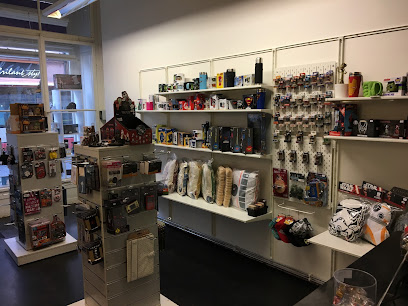
Výdejní a dárkové centrum / www.darkypresnet.cz
Discover unique gifts and souvenirs at Výdejní a dárkové centrum in Pilsen, a charming shop celebrating Czech culture and creativity.
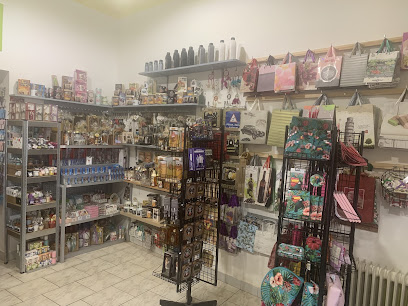
Essential bars & hidden hideouts
Zach's Pub
Discover the vibrant atmosphere and delicious traditional Czech cuisine at Zach's Pub, a must-visit destination in Pilsen.
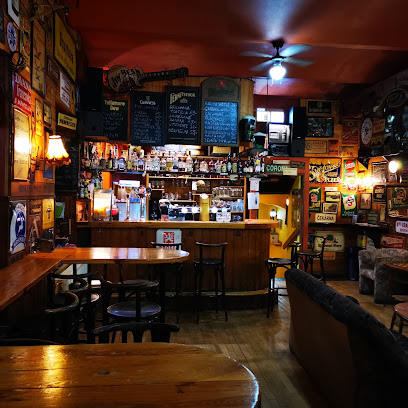
Jameson Rock Club
Discover the lively ambiance and eclectic music at Jameson Rock Club – Pilsen's ultimate bar destination for a memorable night out.
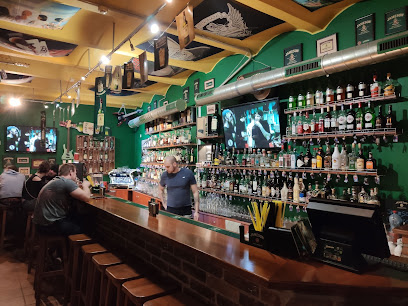
No Limit Bar
Discover the vibrant nightlife at No Limit Bar, Pilsen’s hotspot for cocktails and local brews in a lively atmosphere.
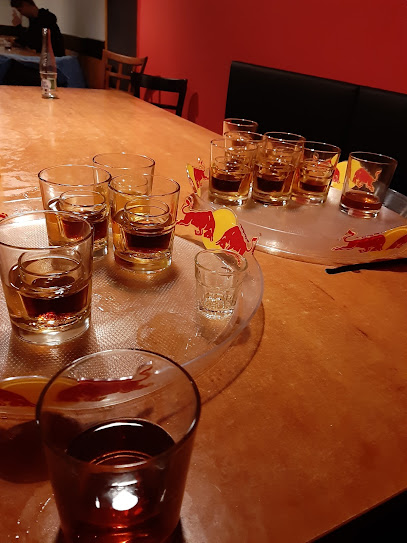
Forestbar
Experience the lively cocktail culture at Forestbar, Pilsen’s premier destination for unique drinks and a vibrant social scene.
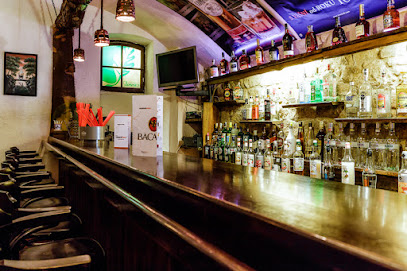
Jekyll & Hyde
Discover the whimsical Jekyll & Hyde Bar in Pilsen, where creative cocktails meet enchanting decor for a unique nightlife experience.
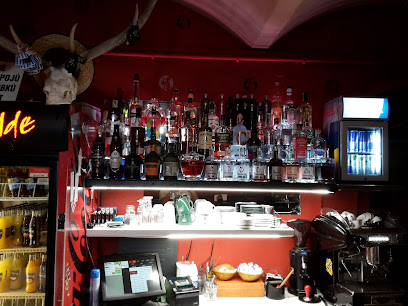
Music Club Mefisto - Plzeň
Discover the heart of Plzeň's nightlife at Music Club Mefisto, where electrifying music and vibrant atmosphere create unforgettable nights.
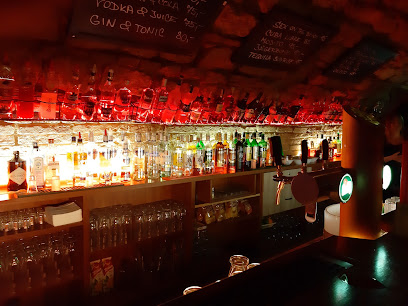
funky Monkey
Experience the vibrant nightlife at Funky Monkey, Pilsen's premier lounge and bar offering delicious cocktails and a lively atmosphere.
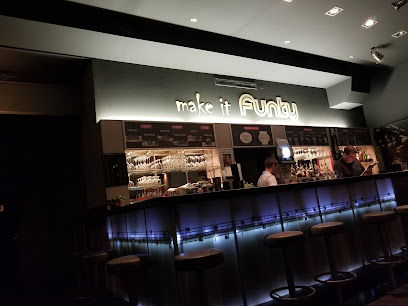
Zapa Bar Plzeň
Experience the vibrant nightlife at Zapa Bar in Plzeň, where innovative cocktails and a lively atmosphere await every visitor.
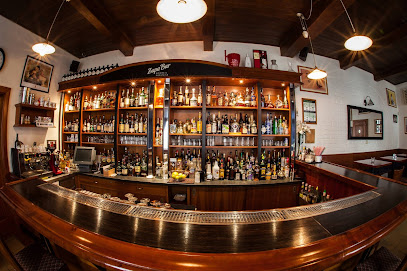
VŠ klub Pivoňka
Discover VŠ klub Pivoňka, Pilsen's vibrant bar offering a diverse drink selection and a welcoming atmosphere for an unforgettable nightlife experience.
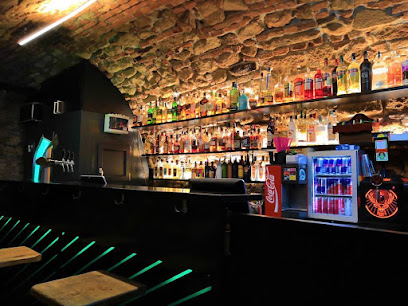
Beer Club Blue Star
Experience the Best of Pilsen's Beer Culture at Beer Club Blue Star – A Perfect Spot for Enthusiasts and Casual Drinkers Alike!
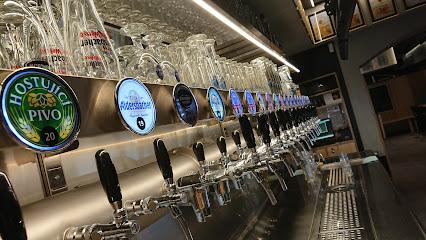
My Friends Bar
Discover My Friends Bar in Plzeň - a lively cocktail bar offering innovative drinks and a vibrant atmosphere for socializing.
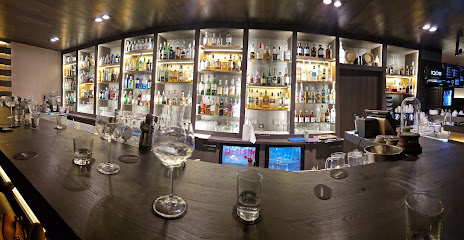
MōōVEMENT
Experience the vibrant nightlife of Pilsen at MōōVEMENT, where cocktails meet live rock music in a dynamic setting.
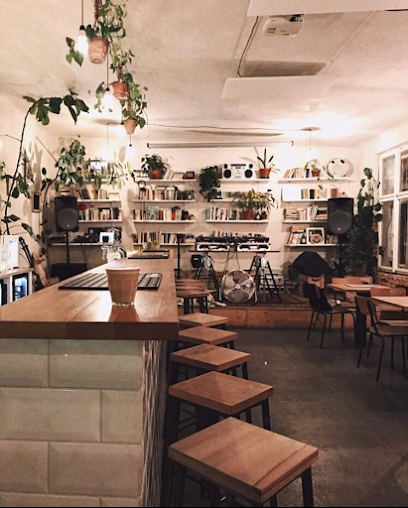
Sally Brown
Discover the lively charm of Sally Brown Bar in Pilsen, where great drinks, friendly faces, and unforgettable nights await you.
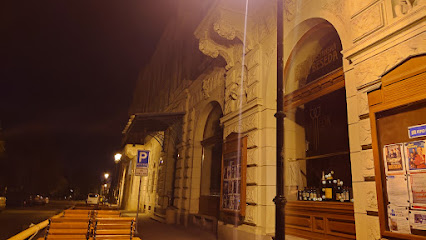
Pink Panther Pub
Dive into the vibrant nightlife of Plzeň at Pink Panther Pub, where lively entertainment and delicious drinks await you.
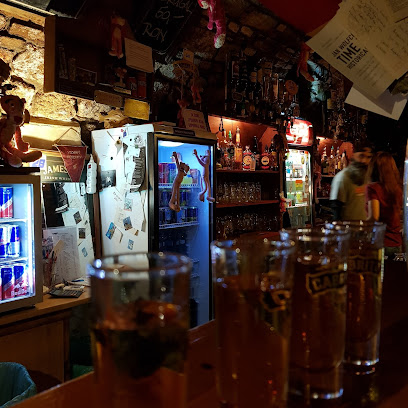
Local Phrases
-
- HelloAhoj
[ahoy] - GoodbyeNashledanou
[nah-she-leh-dah-noh] - YesAno
[ah-noh] - NoNe
[neh] - Please/You're welcomeProsím
[pro-seem] - Thank youDěkuji
[dyeh-koo-yee] - Excuse me/SorryPromiňte
[proh-meen-teh] - How are you?Jak se máš?
[yak seh mahsh] - Fine. And you?Dobře. A ty?
[doh-breh. ah tee] - Do you speak English?Mluvíte anglicky?
[mloo-vee-teh ahng-leets-kee] - I don't understandNerozumím
[neh-roh-zoo-meem]
- HelloAhoj
-
- I'd like to see the menu, pleaseChtěl bych vidět menu, prosím
[kh-tyel bikh vee-dyet meh-noo pro-seem] - I don't eat meatNejím maso
[nyeem mah-soh] - Cheers!Na zdraví!
[nah zdrah-vee] - I would like to pay, pleaseChtěl bych zaplatit, prosím
[kh-tyel bikh zah-pla-teet pro-seem]
- I'd like to see the menu, pleaseChtěl bych vidět menu, prosím
-
- Help!Pomoc!
[po-mohts] - Go away!Jdi pryč!
[ydee preetch] - Call the Police!Zavolejte policii!
[zah-vo-ley-teh poh-lee-tsee] - Call a doctor!Zavolejte doktora!
[zah-vo-ley-teh dohk-toh-rah] - I'm lostZtratil jsem se
[ztrah-teel yehm seh] - I'm illJsem nemocný
[yehm neh-mohts-nee]
- Help!Pomoc!
-
- I'd like to buy...Chtěl bych koupit...
[kh-tyel bikh koh-peeht] - I'm just lookingJen se dívám
[yehn seh dee-vahm] - How much is it?Kolik to stojí?
[koh-leek toh stoh-yee] - That's too expensiveTo je příliš drahé
[toh yeh pree-leesh dra-heh] - Can you lower the price?Můžete snížit cenu?
[moo-zheh-teh snee-zheet tseh-noo]
- I'd like to buy...Chtěl bych koupit...
-
- What time is it?Kolik je hodin?
[koh-leek yeh hoh-deen] - It's one o'clockJe jedna hodina
[yeh yehd-nah hoh-dee-nah] - Half past (10)Půl jedenácté
[pool yeh-deh-naht-seh] - MorningRáno
[rah-noh] - AfternoonOdpoledne
[ohd-poh-led-neh] - EveningVečer
[veh-chehr] - YesterdayVčera
[v-cheh-rah] - TodayDnes
[dnes] - TomorrowZítra
[zee-trah] - 1Jedna
[yehd-nah] - 2Dva
[dvah] - 3Tři
[tree] - 4Čtyři
[ch-tihr-zhee] - 5Pět
[pyet] - 6Šest
[shest] - 7Sedm
[sedm] - 8Osm
[osm] - 9Devět
[deh-vyet] - 10Deset
[deh-set]
- What time is it?Kolik je hodin?
-
- Where's a/the...?Kde je...
[kdeh yeh] - What's the address?Jaká je adresa?
[yah-kah yeh ah-deh-srah] - Can you show me (on the map)?Můžete mi to ukázat (na mapě)?
[moo-zheh-teh mee toh oo-kah-zaht nah mah-peh] - When's the next (bus)?Kdy jede další (autobus)?
[kdee yeh-deh dah-lshee ow-toh-boos] - A ticket (to ....)Jednu jízdenku (do ...)
[yed-noo yeez-dehn-koo doh]
- Where's a/the...?Kde je...
History of Plzeň
-
Plzeň, known internationally as Pilsen, was founded in 1295 by King Wenceslaus II of Bohemia. Situated at the confluence of four rivers—Mže, Radbuza, Úhlava, and Úslava—the city was strategically positioned for trade and defense. Its establishment marked the beginning of a prosperous era for the region.
-
During the early 15th century, Plzeň became a focal point in the Hussite Wars, a series of religious conflicts in Bohemia. The city was a stronghold for the Catholic cause and withstood several sieges by Hussite forces. Its fortifications and the loyalty of its citizens played a crucial role in its defense.
-
The 16th and 17th centuries saw Plzeň flourish culturally and architecturally. The city embraced Renaissance and Baroque styles, leading to the construction of significant buildings like the Renaissance Town Hall and St. Bartholomew's Cathedral. This period also saw the establishment of several significant breweries, laying the groundwork for its future fame.
-
In 1842, Plzeň made history with the creation of Pilsner beer at the Pilsner Urquell Brewery. This new style of pale lager, characterized by its golden color and crisp taste, revolutionized brewing and became a global standard. The brewery remains a major attraction, drawing beer enthusiasts from around the world.
-
The 19th century brought significant industrial growth to Plzeň. The Škoda Works, founded in 1859 by Emil Škoda, became one of Europe's largest industrial enterprises, producing weapons, machinery, and vehicles. This industrial boom transformed Plzeň into an economic powerhouse and significantly influenced its urban development.
-
Plzeň experienced significant hardship during World War II, suffering from bombings and Nazi occupation. However, it holds the unique distinction of being liberated by the US Army on May 6, 1945, under the command of General George S. Patton. The annual Liberation Festival commemorates this pivotal moment in the city's history.
-
Following World War II, Plzeň fell under communist rule as part of Czechoslovakia. The city endured political repression and economic challenges during this period. The Velvet Revolution of 1989, a peaceful uprising against the communist regime, eventually led to the restoration of democracy and significant political and economic reforms in Plzeň and the rest of the country.
-
In recent decades, Plzeň has undergone a cultural renaissance, embracing its historical heritage while fostering modern development. The city was named the European Capital of Culture in 2015, highlighting its vibrant arts scene, historical landmarks, and ongoing contributions to European culture. Today, Plzeň continues to attract visitors with its rich history, cultural diversity, and renowned beer tradition.
Plzeň Essentials
-
Plzeň is conveniently located in the western part of Czechia, about 90 kilometers southwest of Prague. The most common way to get to Plzeň is by train from Prague, with frequent services that take approximately 1.5 hours. Alternatively, you can travel by bus, which offers a similar travel time. For those preferring to drive, the city is accessible via the D5 motorway.
-
Plzeň has an efficient public transportation system that includes trams, buses, and trolleybuses. A single ticket is valid for all modes of transport and can be purchased at ticket machines, newsstands, or via mobile apps. Taxis and ride-sharing services like Uber are also available. For a more local experience, consider renting a bike to explore the city's extensive network of cycling paths.
-
The official currency in Czechia is the Czech koruna (CZK). Credit and debit cards are widely accepted in most hotels, restaurants, and shops in Plzeň. However, it is advisable to carry some cash for smaller establishments or market purchases. ATMs are readily available throughout the city.
-
Plzeň is generally a safe city for tourists. However, like any urban area, it is wise to take standard precautions. Avoid leaving your belongings unattended and be cautious in crowded places. Certain areas, such as the vicinity of the main train station at night, can be less safe, so exercise extra vigilance there.
-
In case of emergency, dial 112 for immediate assistance. Plzeň has several hospitals and clinics, with the University Hospital being the main facility for medical emergencies. Pharmacies are plentiful and can provide over-the-counter medications. It is recommended to have travel insurance that covers medical emergencies.
-
Fashion: Do dress modestly, especially when visiting religious sites. Avoid overly casual attire in upscale restaurants. Religion: Do respect local customs, especially in churches. Remove hats and speak softly. Public Transport: Do validate your ticket before boarding. Don't eat or drink on public transport. Greetings: Do greet people with a firm handshake and maintain eye contact. Eating & Drinking: Do try local specialties like Pilsner beer and traditional Czech dishes. Don't leave tips out of the bill; it's customary to round up the amount.
-
To experience Plzeň like a local, visit the Pilsner Urquell Brewery for a guided tour and taste the original Pilsner beer. Explore the historical underground labyrinth of tunnels beneath the city. Attend a local festival, such as the Liberation Festival in May, which commemorates the liberation of Plzeň by American forces in World War II. For a relaxed afternoon, stroll through the scenic Borský Park or enjoy a paddleboat ride on the Bolevec Ponds.
Trending Landmark in Plzeň
-
Cathedral of St. Bartholomew
-
Historic Underground of Plzen
-
Museum of West Bohemia in Pilsen
-
Brewery Museum
-
Puppet Museum
-
Victims of evil monument
-
Patton Memorial Pilsen
-
lookout Sylván
-
Památník Díky, Ameriko!
-
Church Tower
-
Kostel svaté Anny
-
Pražský most
-
Západočeská galerie v Plzni - výstavní síň „13“
-
Černá věž
-
Museum of West Bohemia in Pilsen - Ethnical Museum
Nearby Cities to Plzeň
-
Things To Do in Karlovy Vary
-
Things To Do in Prague
-
Things To Do in České Budějovice
-
Things To Do in Český Krumlov
-
Things To Do in Kutná Hora
-
Things To Do in Dresden
-
Things To Do in Nuremberg
-
Things To Do in Linz
-
Things To Do in Hradec Králové
-
Things To Do in Leipzig
-
Things To Do in Salzburg
-
Things To Do in Erfurt
-
Things To Do in Munich
-
Things To Do in Rothenburg ob der Tauber
-
Things To Do in Brno










